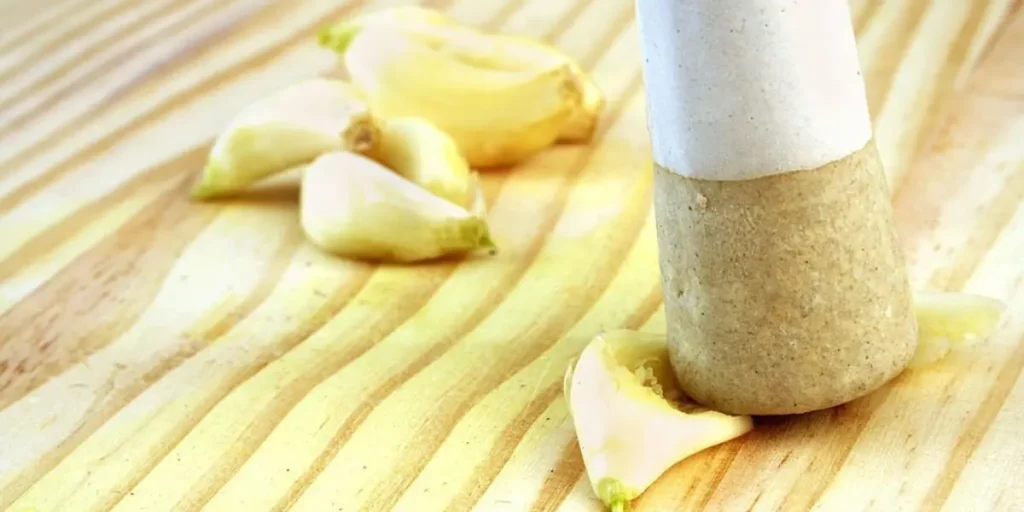When it comes to natural remedies and superfoods, garlic often steals the spotlight for its incredible health benefits. From fighting off colds to enhancing your heart health, garlic is celebrated for its numerous advantages. But could it also play a role in improving testosterone levels? Let’s study and understand how this works.
Understanding Testosterone
Testosterone, colloquially known as the “man hormone,” serves as a pivotal sex hormone for both men and women. It finds its primary origin in the testes of men and the ovaries of women, with additional production occurring in the adrenal glands. Testosterone orchestrates a wide array of bodily functions, encompassing muscle development, bone health, and even libido. Maintaining optimal testosterone levels is paramount for overall well-being.
Garlic And Testosterone

Scientifically labeled Allium sativum, garlic is a globally embraced culinary treasure renowned for its distinctive flavor. Beyond its gastronomic allure, garlic has earned recognition for its potential health-enhancing properties. Some proponents of garlic assert that it possesses the capability to boost testosterone levels, a claim grounded in scientific reasoning.
Benefits
- Antioxidant Properties: Garlic is replete with antioxidants, most notably allicin, which exhibits a propensity to safeguard the testes against oxidative harm. This protective function may contribute to sustaining healthy testosterone levels.
- Cardiovascular Health: A robust cardiovascular system is a prerequisite for testosterone production. Garlic is celebrated for its heart-friendly attributes, indirectly bolstering testosterone levels by promoting optimal blood circulation.
- Cortisol Regulation: Garlic demonstrates the potential to regulate cortisol levels, a stress hormone known to stifle testosterone production when elevated.
- Enhanced Mood: Some individuals have reported an ameliorated mood and reduced stress following garlic consumption, an effect that indirectly bolsters testosterone production.
- Allicin: The active component in garlic, allicin, shows promise in potentially boosting testosterone levels, though further research is warranted to substantiate these effects.
While these facets suggest a plausible connection between garlic and testosterone levels, it is imperative to recognize that the evidence remains inconclusive. The influence of garlic on testosterone typically yields modest effects that may differ from one individual to another.
How To Incorporate Garlic Into Your Diet
Should you aspire to harness the potential benefits of garlic for your testosterone levels, there exists a multitude of avenues for its incorporation into your diet. Garlic can be seamlessly woven into various culinary creations, enriching both flavor and health prospects in your meals. Consider:
- Roasted Vegetables: Elevate your favorite vegetables with a drizzle of olive oil and minced garlic before roasting, culminating in a flavorsome side dish.Sauces and Dressings: Garlic injects depth and character into sauces, dressings, and marinades.
- Soups and Stews: A few cloves of garlic can transform your soups and stews into gastronomic delights.
- Garlic Bread: A timeless favorite, garlic bread offers a delectable means to savor the advantages of garlic.
Other Methods To Improve Testosterone
In your quest to enhance testosterone levels, there are an array of natural strategies to contemplate, independent of garlic consumption. Here are alternative approaches to consider:
- Balanced Diet: Cultivate a dietary regimen rich in nutrient-dense foods encompassing lean proteins, healthy fats, and an array of fruits and vegetables to fortify your testosterone levels.
- Regular Exercise: Engage in a well-rounded exercise routine, fusing resistance training with aerobic workouts to invigorate testosterone production. Compound exercises like squats and deadlifts prove particularly efficacious.
- Adequate Sleep: Bestow upon yourself 7-9 hours of uninterrupted sleep nightly, as quality slumber is instrumental in hormonal equilibrium and sustenance of healthy testosterone levels.
- Stress Management: Confront high-stress levels with relaxation techniques such as meditation, deep breathing exercises, or yoga, as they abet in cortisol control and stress mitigation, both influential factors in testosterone regulation.
- Weight Management: Maintaining an optimal weight is of paramount importance, for obesity is linked to reduced testosterone levels. Striving for and preserving a healthy weight can engender a favorable impact on hormone levels.
- Limit Alcohol and Quit Smoking: Moderation in alcohol consumption and the abandonment of smoking habits can be pivotal in averting decreased testosterone levels, as both habits have been correlated with hormonal imbalances.
Conclusion
While garlic undeniably confers a plethora of health advantages and exhibits plausible links to testosterone enhancement, it is not a panacea for instant testosterone elevation. A wholesome diet, regular exercise, and prudent lifestyle choices are pivotal in preserving optimal hormone levels.
Thus, embrace garlic as a culinary ally, not only for its potential influence on testosterone but also for its far-reaching health merits. In any dietary transformation, it is advisable to seek the counsel of a healthcare professional to ensure alignment with your specific health aspirations.
Garlic, a savory addition to your meals, may just provide that extra nudge towards a more robust state of well-being.